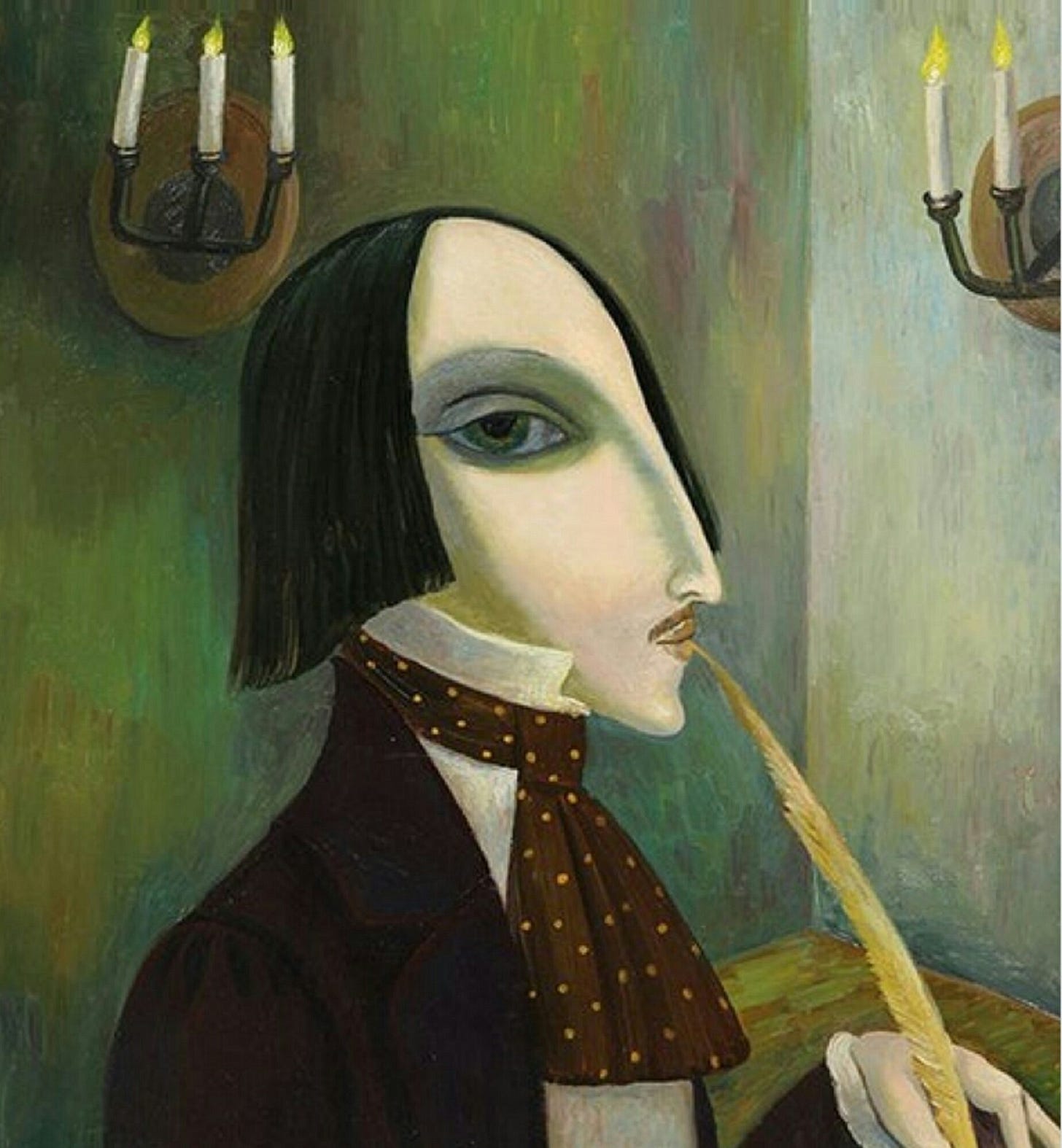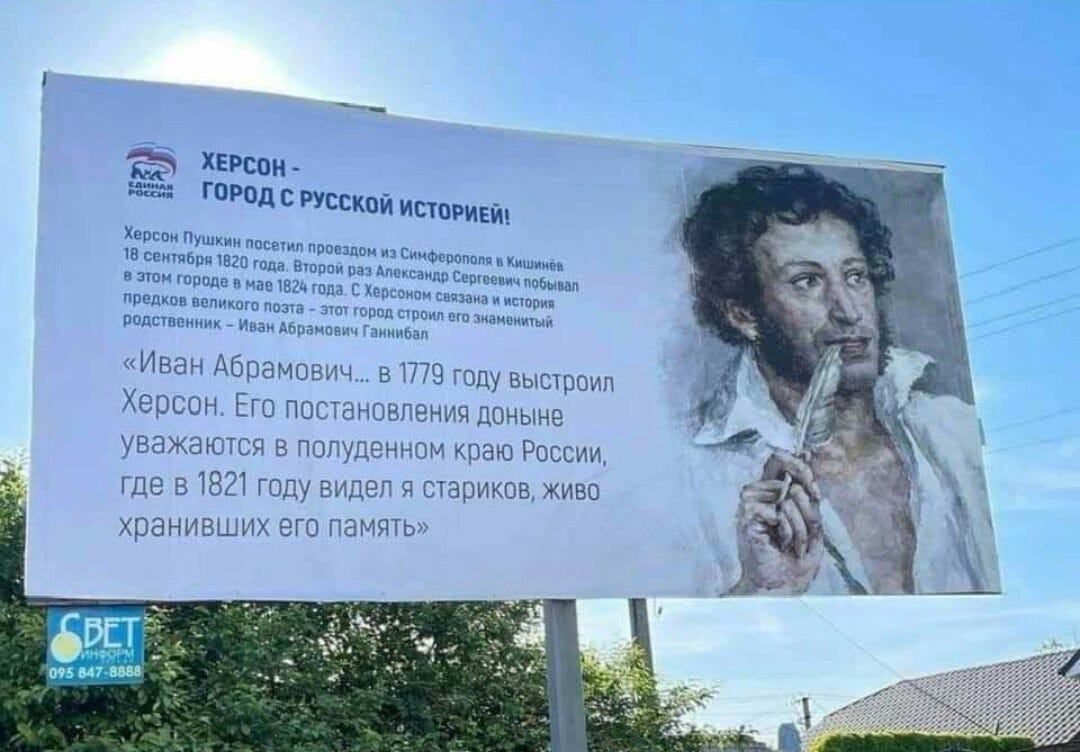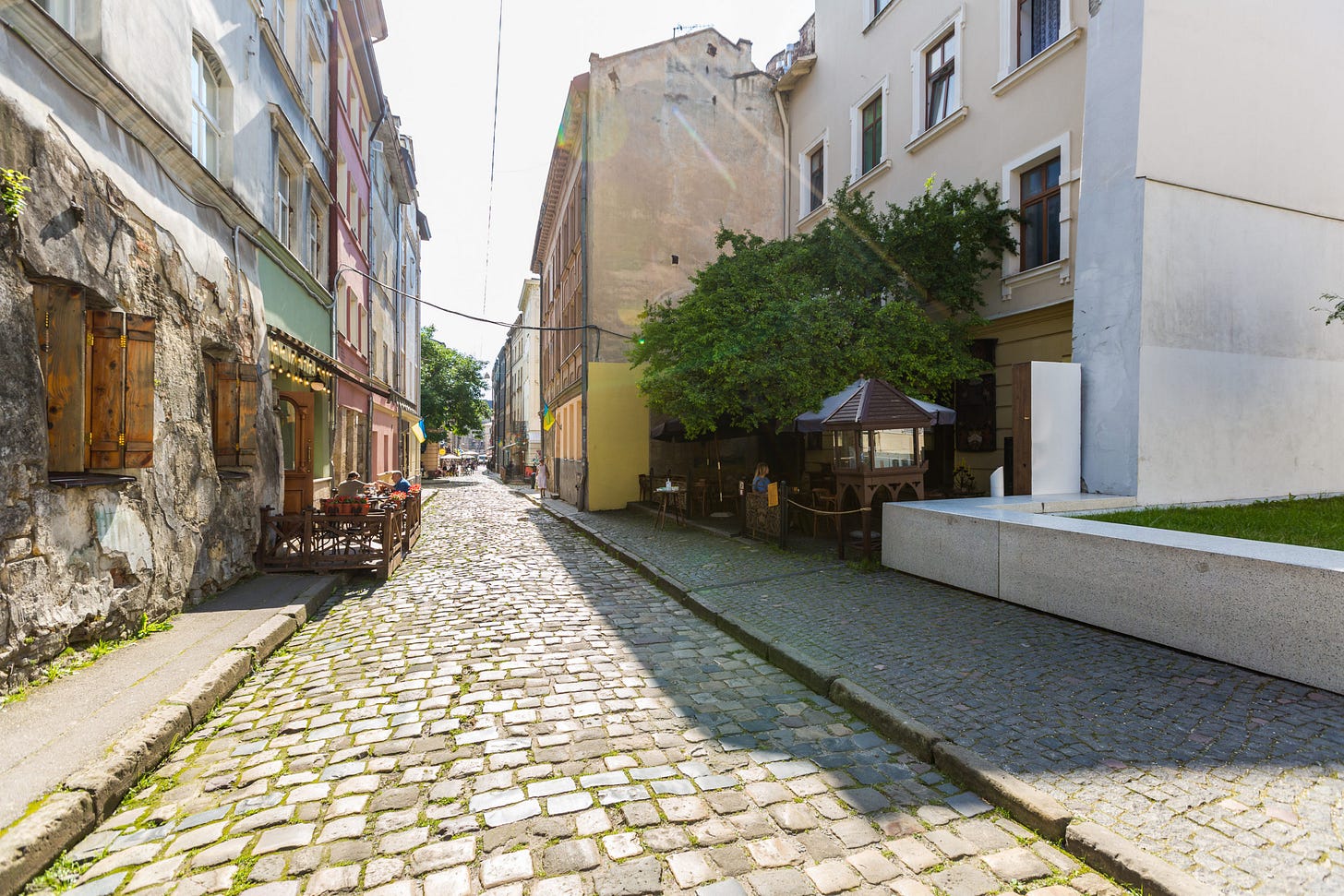Malorussia
Could the imaginary compromise between Ukraine and Russia ever solidify into a nation?
During the peaceful 00s, when the infamous Russian imperialist Aleksandr Dugin was still friendly with the most influential Ukrainian conservative Dmytro Korchynsky and was still mentoring current grey cardinal of the “Azov” movement Olena Semenyaka, some Russian nationalists, such as Aleksandr Sevastyanov, and some Ukrainian national democrats, such as Yury Andrukhovych, were worried about a possibility of the emergence of a distinct Malorussian nation. Which would be antagonistic to Ukraine and Russia simultaneously, have its own pantheon of heroes and respectable people, and use a slightly Ukrainized version of Russian or surzhyk as the primary language and source of self-identification. Both of them wrote texts on this precise topic back then and I remember reading these texts. Sadly, Google is not letting me search by a decade and is only showing their recent thoughts, re-framed according to the needs of the time.

Such fears indeed had grounds beneath them. It is Eastern Ukrainians who were the weakest link in both Russian and Ukrainian overarching projects throughout the entire post-Soviet Ukrainian independence. They had ethnic, family, educational, and business ties with Russians far more frequently than they had with Western Ukrainians, whereas the latter established numerous such ties with "unquestionable" Europeans - those in the European Union. Eastern Ukrainians were always far less mobile and adaptable than Western ones. For example, the majority of workers from my own industrial neighborhood in Kharkiv were willing to work in their factories without pay for years during the troubled 90s, surviving through amateur agriculture, often located within the limits of urban territories. Whereas Westerners quickly occupied building renovation and manual labor positions in Western Europe.
These ties never prevented Russian Russians from othering Eastern Ukrainians, denigrating them by using the "khokhols" slur and generally making little difference between Westerners and Easterners. I've been living in Moscow, St. Petersburg, and Kazan for a fair bit of time in the 00s. And never ever I was recognized or named Russian there, although the Russian language is my native, I always had no Ukrainianisms in my speech (differentiated between Russian "ili" and Ukrainian "chy", unlike 80% of my classmates) and ethnically I'm 1/3 Russian. Always either khokhol or a Jew. In these cities, I saw lots of pro-Serbian stickers, made and distributed by football hooligans. Not a single pro-Ukrainian sticker, in a time of peace and relative friendship. Thus, if Western Ukrainians othered Easterners mostly on cultural and historical grounds, Russian Russians did it on political grounds. Even back then the only way to be recognized as Russian-in-Ukraine by Russians-in-Russia was to be the Russian irredentist and ukrainophobe.

Knowing this, how do we explain the generally good relations between Dugin and various Ukrainian right-wingers in the 00s? No one in "Azov" ever denied the profound influence Dugin had on young Andriy Biletsky. Folks from the Kharkiv branch of "Tradition and Order" who spoke to me in late 2020/early 2021 never dismissed Dugin completely and were only lamenting his duplicity on the Ukrainian question. My suspicion is that, apart from many shared cultural sympathies, all of them expected Ukraine to remain the geopolitical periphery for a long time, perhaps until the end of their lives. Had Yanukovych not been ousted the way he was ousted, we can perfectly imagine "Azov" in the role of modern Polish "Konfederacja", far-right who place Euroscepticism above the national security and criticize their mainstream right (in their case, President Duda and PiS party) for “excessive” help to the liberal-leaning Zelensky regime. Things turned out differently however and Ukrainians managed to ensnare the entire Western liberal-democratic project, making its credibility dependent on the fate of pro-European Ukraine.
And here we're coming back to the essence of Malorussian or Eastern Ukrainian identity. If detached from the definitions of Ukrainian nationalists, for whom these are victims of colonization, and Russian imperialists, for whom these are "hostages of drug addicts and neo-Nazis" (V. Putin), then what we see is a generally Russophone mix of ethnic Ukrainians and Russians, who were formed and are still immersed in both cultures. While the differences between them and Western Ukrainians aren't going away anytime soon, the most politically relevant difference in 2022 between them and Russian Russians is their attitude to Europe and their self-identification as Europeans. No one sane would equal Milan with Chelyabinsk in Kharkiv or Odesa. While many in Moscow would. Seen as a loyalty test in Russia, this forced comparison was always seen as unwarranted pride and idiocy in Ukraine. Unfortunately, it also found its way into Russian diplomacy and geopolitics. Probably temporarily, as I consider Russians to be Europeans in denial, despite the military usefulness of Mongol Horde memes. Had they truly been Mongols they would care what people in China or Vietnam, their current geopolitical allies, think of them. But they do not. They are only interested in European and American assessments. They would prefer Western praise of course but failing that they're more interested in Western criticism than Asian praise. Part of their eternal internationalist-autarkic cycles: Lenin-Stalin, Yeltsin-Putin.

Now that the Russian invaders are weaponizing their culture on freshly occupied territories, Ukrainians are hitting back by limiting its spread on territories under control. Pushkin, Tolstoy, Dostoevsky, all the distinctively Russian influencers are being removed from the school curriculums, toponymy. Nobody touches Nikolai/Mykola Gogol yet. He might be the most crystalized Malorussian ever, linking Poltava to St. Petersburg. The willingness of Ukrainian intelligentsia to defend him will indicate many things about the future treatment of Eastern Ukrainians. So far this strata is silent. And since in all things related to Ukrainian nationalism the main indicator of things to come is Lviv, our local San Francisco of American liberalism, it might be useful to check out the Ukrainophone Wikipedia article about the Gogol street in Lviv once in a while. On June 9, 2022, the day this article was finished, it was referring to Gogol as a Ukrainian writer. The article about Gogol himself which this article directly links to, which is also in the Ukrainian language, presents him as a "Russian writer of Ukrainian origins".
It is of course a mystery whether Gogol would've been part of the pro-Ukrainian intelligentsia in Russia, had he lived today, or would he preferred Putin's favor and gifts. From the perspective of Russian imperialism, Malorussians are only useful when in Ukraine and when dealing with what Dmitry Medvedev recently called "deep Ukrainism". Still, it is Zelensky, who was labeled as Malorussian by Ukrainian nationalists during his election contest against Poroshenko, manages to wage war against the aggressor with the full support of Eastern Ukrainians. Had the "deep Ukrainian" Poroshenko stayed in power, there's indeed a possibility that Putin's "banderite" slur would have worked better and found some ears among the Ukrainian military.
It seems that both Sevastyanov and Andrukhovych can relax and Malorussia won't happen as a nation. Will Malorussians be accepted as Ukrainians once they start speaking in Ukrainian language? How this massive influx of fresh blood will change Ukrainian culture? Especially if it will coincide with the massive resettlement of Easterners to Western Ukraine. Will the fresh Stepan Bandera streets work out better for nationalists than Lenin streets did for the formation of young communists in the Soviet Union? Many questions, little certainty. One thing I'm definitely interested right now is the popularity of Morgenshtern among native Poles in Poland.



Interesting but a bite delayed thought. The mixed identity is destroyed by this war.